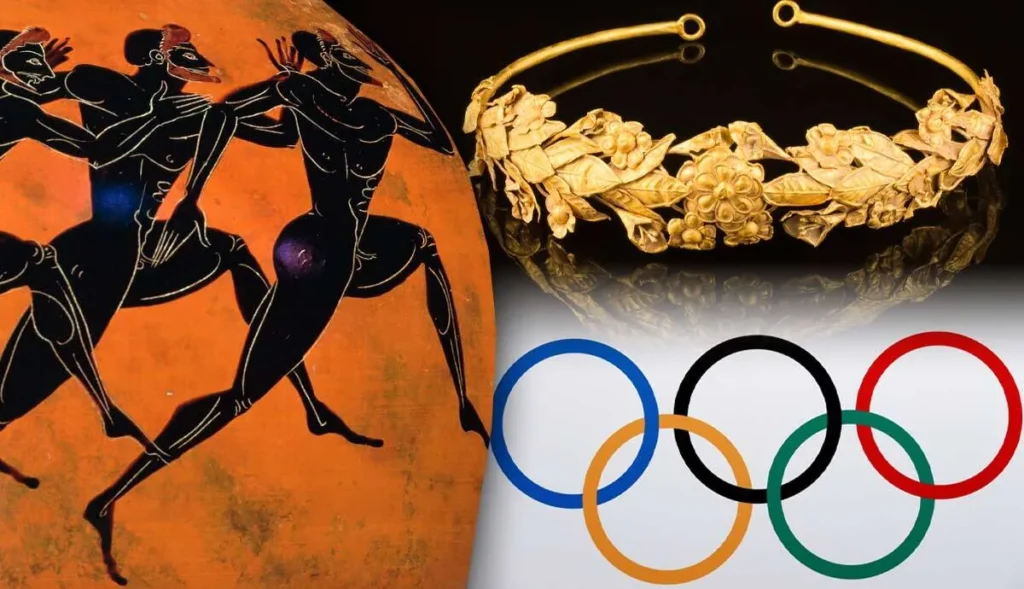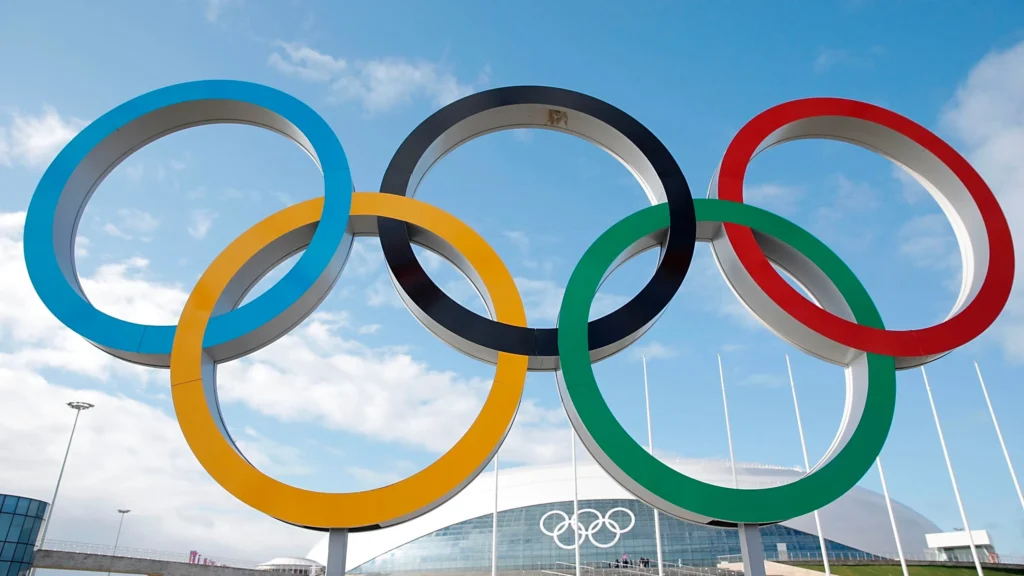The Olympic Games represent the pinnacle of global athletic achievement, a celebration of human potential and unity. Spanning centuries and evolving through cultural shifts, technological advancements, and global events, the Olympics have come a long way since their inception in ancient Greece. This blog dives into the rich history of the Olympic Games, exploring their origins, decline, revival, and modern significance.

The Origins of the Olympic Games in Ancient Greece
The Olympic Games trace their roots back to 776 BCE in Olympia, Greece, where they were held to honor Zeus, the king of the Greek gods.
Structure and Events in Ancient Times
- The Games were part of a religious festival and included rituals like sacrifices to Zeus.
- Initially, the Olympics featured only one event: the stadion, a footrace approximately 192 meters long. Over time, other events like wrestling, chariot racing, and the pentathlon (comprising running, jumping, discus throw, javelin throw, and wrestling) were added.
- Only free Greek men could compete, and participants often performed naked as a symbol of dedication and physical excellence.
Cultural and Political Importance
- The Games served as a unifying force among the often-warring city-states of Greece, providing a platform for showcasing prowess and gaining honor.
- Victors were celebrated with laurel wreaths and became symbols of their city-state’s glory.
The Decline of the Ancient Olympics
The ancient Games continued for nearly 12 centuries until they were abolished in 393 CE by Roman Emperor Theodosius I, who viewed them as pagan practices inconsistent with Christianity.
The Revival of the Olympic Games in the Modern Era
After centuries of dormancy, the Olympic Games were revived in the late 19th century, thanks to the efforts of French educator Baron Pierre de Coubertin. Inspired by the ideals of ancient Greece, Coubertin envisioned a global event that would promote peace and cultural exchange through sports.
The First Modern Olympics: Athens 1896
- The inaugural modern Olympic Games were held in Athens, Greece, as a nod to their historical origins.
- The event featured 14 nations and 241 athletes competing in 43 events across nine sports, including athletics, cycling, fencing, and swimming.
- Unlike the ancient Games, women were not allowed to compete initially, though their inclusion would come soon after.

Key Milestones in Olympic History
Inclusion of Women
- Women first participated in the Olympics during the 1900 Paris Games, competing in tennis and golf.
- Over time, their inclusion expanded, with the 2012 London Olympics being the first to feature female athletes in every sport.
Winter Olympics
- The first Winter Olympics were held in 1924 in Chamonix, France, showcasing sports like skiing, ice skating, and hockey.
- The Winter Games have since become a staple of the Olympic tradition, alternating with the Summer Games every two years.
The Olympic Flame and Torch Relay
- The concept of the Olympic flame, symbolizing the eternal spirit of competition, was introduced in the 1928 Amsterdam Games.
- The torch relay, which carries the flame from Olympia to the host city, debuted in the 1936 Berlin Games.
The Paralympic Games
- The Paralympics, established in 1960 in Rome, provide a platform for athletes with disabilities to compete at the highest level.
- The event runs parallel to the Summer and Winter Olympics, embodying the spirit of inclusivity.
Challenges and Controversies in Olympic History
World Wars
- The Olympic Games were canceled during World War I (1916) and World War II (1940 and 1944) due to global conflicts.
Political Boycotts
- The Olympics have often been a stage for political expression, with notable boycotts including the U.S.-led boycott of the 1980 Moscow Games and the Soviet Union’s boycott of the 1984 Los Angeles Games.
Doping Scandals
- The use of performance-enhancing drugs has marred the credibility of the Games, with high-profile cases leading to stricter anti-doping regulations.
The Olympics in the Modern Age
Global Reach and Participation
- Today, the Olympics feature athletes from over 200 nations, making them a truly global event.
- The Games have expanded to include a wide variety of sports, including skateboarding, surfing, and climbing in recent years.
Technological Innovations
- Advanced broadcasting technologies have brought the Olympics to billions of viewers worldwide, enhancing accessibility and engagement.
- Innovations in training, equipment, and facilities have pushed the limits of athletic performance.
Sustainability and Legacy
- Recent host cities have focused on sustainability, with initiatives like repurposing venues and reducing the environmental impact of the Games.
- The Olympics leave a lasting legacy by inspiring local communities and boosting infrastructure.

FAQs: The Olympic Games
Q1: Who started the modern Olympic Games?
The modern Olympic Games were revived by Baron Pierre de Coubertin in the late 19th century.
Q2: Why were the ancient Olympics held?
The ancient Olympics were held to honor Zeus and foster unity among Greek city-states.
Q3: What is the significance of the Olympic rings?
The five interlocking rings represent the unity of the five continents and the global nature of the Games.
Q4: How often are the Olympics held?
The Summer and Winter Olympics are held every four years, alternating every two years.
Q5: What are the Paralympics?
The Paralympics are a parallel event for athletes with disabilities, promoting inclusivity in sports.
Conclusion
The Olympic Games have evolved from a religious festival in ancient Greece to a global phenomenon that transcends cultural, political, and social boundaries. They celebrate the best of human potential, fostering unity, perseverance, and excellence.
As the Olympics continue to adapt to the modern era, they remain a symbol of hope and inspiration, reminding us of the power of sports to bring the world together.




